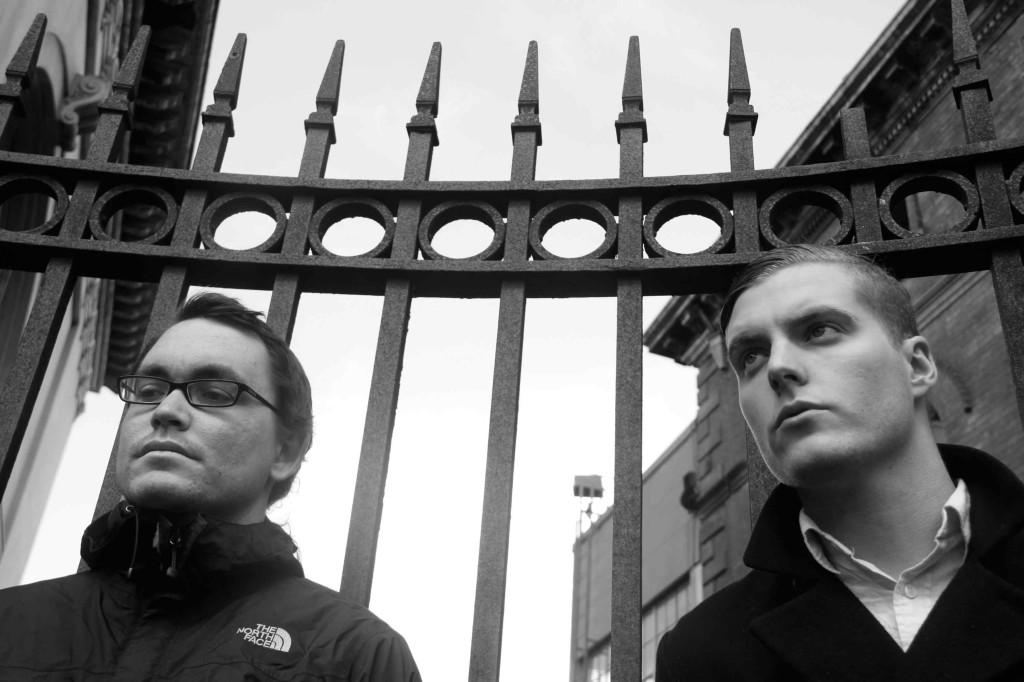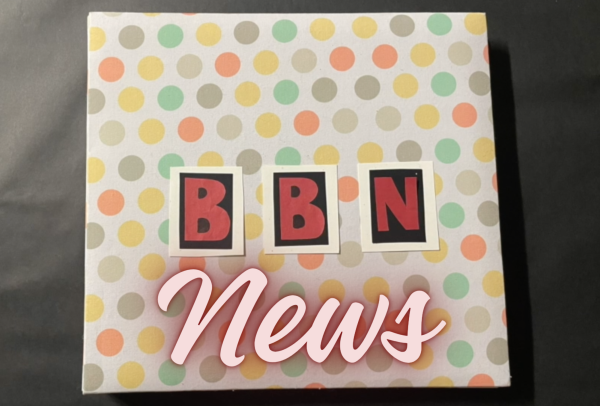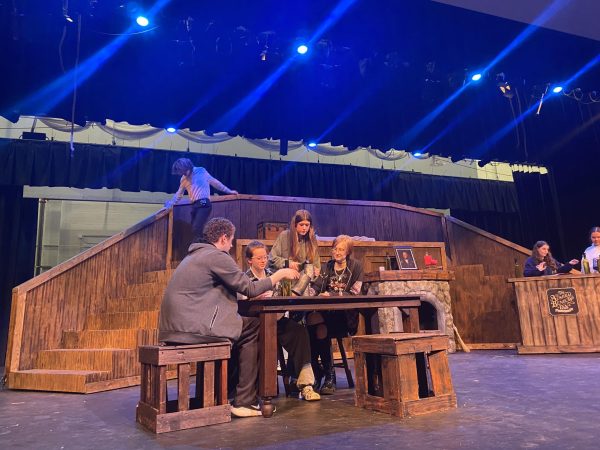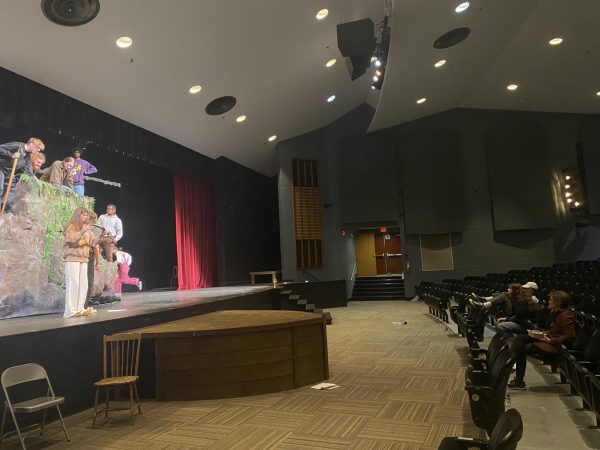EVANS: Top 10 albums of 2013
Jack H. Evans selected Deafheaven’s release as the best of 2013.
Confirmation that the internet is evil: everywhere I go on it, I keep seeing people say how bad this year has been for music, how dismal, how there’s been next to nothing worth listening to. I can’t quantify how much that makes me cringe. In my mind, this has been an amazing year for music, and I have a list of nearly 200 albums that proves just how great it’s been. Needless to say, it’s hard to narrow down a list like that and even harder to rank it, and there are a lot of albums outside of my personal top 10 that have impacted me personally and that I’d recommend to anyone without hesitation. That said, below are 10 of my favorite albums from this year, and they’re albums that I think need to be heard by as many people as possible. It’s hard to rank anything definitively because taste is so subjective, but in a year filled to the brim with exemplary albums, these are some of the “best.”
10. Touché Amore – Is Survived By: Every musical movement has its pale imitators. We all know about the Nickelback-lead post-grunge left in the wake of Nirvana et al, the attempt at reviving “gangsta” rap that gave early-mid-00s hip-hop a bad name, and the pathetic American imitations of British dubstep. Even after the success of their excellent 2011 album Parting the Sea Between Brightness and Me, Touché Amore was in danger of becoming a ghost in the wave (actually referred to as The Wave) of screamo-influenced post-hardcore that it led along with bands like La Dispute. It’s hard to say whether Is Survived By is better than Parting the Sea on its own merits, but in the context of TA’s career, it’s definitely their most important record. The songs here are the most mature they’ve ever released (they’re longer than 2 minutes!), and their post rock and emo influences are more apparent than ever. Sure, Jeremy Bolm’s lyrics still bring up angst, but there’s no doubt that Touché Amore have grown up and dropped the “teen” prefix.
9. Speedy Ortiz – Major Arcana: Let’s get the obvious thing out of the way first: yes, Speedy Ortiz sometimes sounds a lot like Pavement. It’s not like they’re hiding it; singer Sadie Dupuis was even in an all-female Pavement tribute band called Babement. That doesn’t stop them from also being, in a word, awesome. A few bands have tried recently, but Speedy is more successful than any in recalling an era of indie rock that was dominated by loud, weird lead guitars. Dupuis is an engaging frontwoman, and the only thing more alluring than her open (inviting, even) voice is her starkly honest lyric writing (which can also be strikingly funny at times). Pavement’s first full-length was Slanted and Enchanted, and it’d be unfair to Speedy Ortiz to compare Major Arcana to that opus; but if this debut is any indication, we could be looking at the next great indie rock band.
8. Kanye West – Yeezus: When it comes to making people mad, Kanye West is a master. Between his infamous Taylor Swift interruption, his engagement to a loved/loathed reality TV star, his bursts of rage at the paparazzi, and his generally enormous ego, he’s made it very clear that he doesn’t care if the public hates him. Yeezus is as audacious an artistic statement, as Ye proclaims himself a god on a song “featuring God,” makes Justin Vernon and Chief Keef make sense together, and fills an album with bare but maximalist industrial beats only to pull the rug out with a soulful closer. West’s musical left turn may have alienated some of those that had stuck with him through the inflation of his public persona, but it’s much sadder that the general public wrote off Yeezus because of West’s ego and missed a creative masterclass. Then again, just as every superhero needs his theme music, music always needs a supervillain, and it would appear that West has no problem being hip-hop’s madly genius Lex Luthor.
7. Circle Takes the Square – Decompositions: Volume Number One: Remember when the world was supposed to end a year ago? Obviously it didn’t, but December 21, 2012 was remarkable in that it marked the release of the first album by seminal screamo band Circle Takes the Square in nearly nine years (since that was after “album season” last year, didn’t get coverage until January, etc., I’m considering it a 2013 release). Decompositions: Volume Number One is the sonic equivalent of the apocalypse, a chaotic, verbose piece that shifts from frantic hardcore to slow-burning sludge to restrained spoken-word and back in an instant. At the same time, it’s more maturely composed than their legendary debut, As the Roots Undo, and its methods of heralding man’s demise are at least a little different – at least, so much that you wouldn’t expect the glorious acoustic indie-folk that closes the album to be so perfect.
6. Waxahatchee – Cerulean Salt: Most musicians can tell you that raw, unaccompanied electric guitar can sound like the worst thing ever. Sure, it sounds great on your favorite Nirvana record, but it takes just the right touch. On “Hollow Bedroom,” the song that opens her second LP as Waxahatchee, Katie Crutchfield makes that approach sound like the easiest, most gentle thing in music. “I left like I got my way, but truly I left with nothing at all,” Crutchfield sings as her fingerpicking begins. It’s an appropriate thesis for Cerulean Salt, an album where the songs are intensely personal poetry intermingling with easy hooks, where the guitars rarely bite but still signal an increased aggressiveness over her debut. “Salt” is a perfect word to describe an album so simple, so earthy, and so ultimately satisfying.
5. Phosphorescent – Muchacho: When someone says “alt-country,” the first band that comes to mind is probably Wilco or someone of that ilk. Matthew Houck’s project Phosphorescent doesn’t sound anything like those guitar rock bands, but Muchacho is very much an alternative country album. Houck layers his American country and folk touchstones with ethereal choruses, dreamy synths, and Johnny Cash references to create atmospheric juxtapositions to his weathered, world-weary stories of love and loss. But for all its heartache, what makes Muchacho remarkable is Houck’s refusal to give into despair: love may be “just as fickle as a feather in a stream,” as he sings on the gorgeous “Song for Zula,” and even as he runs through an itinerary of heartbreak’s caging frustrations, he emphasizes, “You will not see my fall, nor struggle to stand.” While popular contemporary country mostly concerns itself with partying and trite love songs, Muchacho is an honest, solitary affair, a great modern country album as much for its beautiful lyricism as for its musical dynamics.
4. The Dillinger Escape Plan – One of Us is the Killer: New Jersey noise-artists The Dillinger Escape Plan have made a career out of being inaccessible, but in 2013, they became the most listener-friendly they’ve ever been. It may not be immediately apparent until the title track breezes in with its sultry woosh (one of the many brilliant touches by producer Steve Evetts), but from the dissonant rhythmic hooks that open “Prancer” and “When I Lost My Bet” to the sinister modern rock of “Nothing’s Funny,” the appeals on One of Us is the Killer are borderline accessible. Greg Puciato’s lyrics are seething and confrontational, but he’s apparently been working on his vocal delivery, as it’s as clear and precise as ever. Dillinger’s live show is already legendary for the band’s manic energy (guitarist Ben Weinman hangs upside-down from the rafters) and the packed houses it draws, but in between One of Us is the Killer’s caffeinated time signature changes and tempo shifts, there’s enough mass appeal hidden for them to draw legions of even more fans.
3. Protest the Hero – Volition: Plenty of bands have suffered from the curse of releasing their best work early in their careers and then fading, but most don’t record a near-perfect debut while still in their teens as Protest the Hero did nearly a decade ago with Kezia. It’s amazing enough that, with its members still in their mid-20s, PTH is four albums into a career that’s seen them rocket from metalcore’s “next big thing” to one of the most influential bands in modern progressive music (and chart-toppers in their native Canada). What’s most impressive, though, is the maturity that makes Volition so successful. 2008’s Fortress and 2011’s Scurrilous are undeniably solid releases, but both are plagued by a mixture of brilliant songwriting and excessive self-indulgence. Volition is the first time since Kezia that all the songs on the album have felt like songs through-and-through, rather than a mixture of songs and exercises. That doesn’t mean that Protest have become simpler – if anything, Luke Hoskin and Tim Millar’s guitar playing has become more consistently complex than ever before – but the guitars aren’t the big show anymore; they’re in-line with everything else, allowing Rody Walker to shine as a vocalist and lyricist. Instrumental virtuosity is all well and good, but with Volition, Protest the Hero has finally regained the perfect balance between pure skill and songwriting.
2. Vampire Weekend – Modern Vampires of the City: Somewhere along the line, around four or five years ago, someone (probably the same people who ruined the word “emo” in the mid-00s) decided to revive the word “hipster” as a way to insult people who like independent movies or wear horn-rimmed glasses or something. The members of Vampire Weekend may have a fondness for sweaters and use 5-dollar words in accordance with pop-culture references, but they’re far from the kind of imitative pseudo-intellectuals that the common pairing of “hipster” and indie pop would have you believe. Modern Vampires of the City is a departure from the saccharine afropop of VW’s career thus far, but it’s by far their strongest work, drawing from styles like hip-hop, alt-country, and classical to full effect. Above all, Modern Vampires is a highly literate work not only in that the songwriting is smart or well-read but in that Ezra Koenig’s songs double as vivid short stories, from the futuristic, brooding New York of “Hudson” to the cross-country journey of “Hannah Hunt” to the mundaneness of life in “Obvious Bicycle.” Sure, you can call Vampire Weekend “hipsters” if you want – just don’t think that that means they’re not unique or that Modern Vampires isn’t a songwriting showcase for the ages.
1. Deafheaven – Sunbather: There’s little left to be said about Sunbather. That’s not a detriment to its quality; it just happens to possibly be the Most Talked About Album of 2013 (and its only real competition for that title is Yeezus), between the endless think-pieces on its place in modern heavy music, the arguments over whether it’s “really black metal” (as if it matters), the contemplation of its gorgeous cover art, and the impossibly high mountains of praise heaped upon it by thousands of fans and nearly every media outlet. But every ounce of that praise is deserved. Sunbather is the kind of album that only comes around once every several years, a singularly beautiful piece of art bursting with light and emotion.
I could try to describe the music of Sunbather: how guitarist Kerry McCoy has at least as much reverence for The Smiths and My Bloody Valentine as he does Emperor, how Dan Tracy is not only one of the most talented drummers working in metal but also one of the few who knows how to let a song breathe, how George Clarke puts more passion into one line of lyrics than most singers do into a whole album. But that would be a disservice to the album. It’s an album where every second of its one-hour runtime needs to be experienced. Some people may not be able to get past Clarke’s screams, and some may not care for the blend of black metal and screamo with post-rock and dream pop. That’s okay, of course – not everyone has to like it. But everyone should try it. I can’t put the glory of Sunbather into words, but maybe I can tell you about how, when the guitars kick in at the end of “Dream House,” it still feels like lightning is shooting through every cell in my body, even a hundred listens later; maybe that’ll convince you to listen to the best album of this decade.







